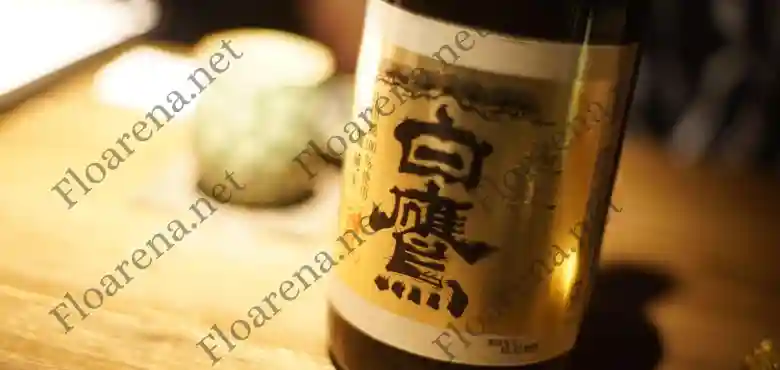Embark on a flavorful journey through Japan’s rich culture with each sip of Japanese alcoholic drinks. From crisp saké to the mellow umami of shōchū, these beverages are more than just drinks-they’re an experience.
Whether you’re at a local izakaya or home, dive into an authentic tapestry of tastes. Get ready to discover why Japan’s spirited traditions have been savored for centuries.
In this guide, we’ll explore must-try libations that promise to transform your evenings. Raise your glass to tradition and join us on this intoxicating adventure. Cheers to the vibrant world of Japanese spirits!
Umeshu
Umeshu is a sweet liqueur made from ume fruits. It has been perfected over time to have just the right amount of sweetness and sourness. Whole ume fruits are often used in this tasty drink, and they keep adding flavor over time.
Umeshu can be served warm, on the rocks, or mixed with soda. It can be chilled or served cold. It can be used in many ways and tastes good, so it’s a good way to start drinking Japanese alcoholic drinks.
Shochu
Shōchū is a distinctively Japanese spirit renowned for its versatility and varied flavor profiles. Usually distilled from barley, sweet potatoes, or rice, this clear liquor is both potent and smooth. Shōchū can be enjoyed neat, on the rocks, or as a base in cocktails, making it an adaptable choice for any occasion.
Unlike saké, shōchū has a lower water content, which results in a higher alcohol content, often ranging from 25% to 30%. Its subtle taste complements a wide range of Japanese cuisine, enhancing the overall dining experience.
Sake
Sake, revered as Japan’s national beverage, is a refined rice wine with delicate flavors that range from fruity to nutty. Brewed through a meticulous process that converts rice starch to sugar for fermentation, it can be sipped warm or chilled.
Sake pairs exquisitely with traditional Japanese cuisine, complementing dishes like sushi and tempura. Its complexity and variety offer something for connoisseurs and novices alike to appreciate. When you want to experience Japan, a visit to a sake expert is a cultural pilgrimage, offering you insights into its ceremonial importance and meticulous brewing process.
Suntory Whisky
Japanese distillers are very good at making fine spirits, as shown by Suntory Whisky. It became famous all over the world for the way well it combined precision and flavor. Each bottle is a mix of traditional Scottish methods and the unique way Japanese people care about nature.
Well-known labels like Yamazaki and Hibiki offer notes that range from soft to strong, so they can please a wide range of tastes. Whisky lovers can explore a tapestry of aged, complex flavors with every sip of Suntory Whisky.
Hoppy
Hoppy is a unique low-alcohol beer-like drink that has made a name for itself in Japan’s drinking culture. It was first made in Japan after World War II as an inexpensive alternative to beer. It tastes like light malt and bitter hops.
Most of the time, Hoppy is enjoyed mixed with shochu, which makes it taste better and adds more alcohol to it. This mix, called “Hoppy Set,” is popular in izakayas in Tokyo because it’s crisp and refreshing to drink. The fact that hops are becoming popular again as a retro drink shows how Japan likes to mix old and new.
Awamori
Awamori is Okinawa’s signature distilled spirit. It comes from Thailand and has been around for more than 400 years. Long-grain indica rice, not short-grain rice like in sake, is used to make this strong drink. Aging makes Awamori’s flavors smoother and more aromatic, which is something that fans enjoy.
You can enjoy it by itself, on the rocks, or mixed with water to fully enjoy its unique qualities. Not only is awamori a drink, but it’s also a major part of Okinawan culture.
Yuzushu
Yuzushu is crafted from the zestful yuzu citrus, infusing vibrant aromas and a pleasantly tangy flavor. This liqueur blends yuzu juice with sake or shochu, resulting in a refreshing, low-alcohol delight. It shines both as a summery aperitif or a zesty cocktail ingredient.
Yuzushu’s alluring balance of sweet and sour notes epitomizes Japanese finesse in liqueur creation. Relished chilled or on ice, it offers a zingy twist to any beverage repertoire.
Chūhai
In Japan, chūhai, which means “shochu highball,” is a very popular fruit-flavored fizzy drink. It’s usually made by mixing shochu with carbonated water and different kinds of fruit juice to make a fizzy and refreshing drink.
This drink comes in a lot of different flavors, like lemon, grapefruit, and peach. You can find them in convenience stores and izakayas. Chuhai is a light and enjoyable drink for casual drinking because it doesn’t have much alcohol in it. Its light and pleasant taste makes it perfect for relaxing after a long day.
Ochawari
Ochawari is a traditional Japanese method of enjoying tea-infused spirits. Typically involving the delicate blending of green tea with shochu, it creates a soothing, aromatic beverage. This harmonious mix is lauded for its warmth and depth of flavor.
It’s often consumed in a relaxed setting, invoking a sense of tranquility. Ochawari is not just a drink; it’s a ritualistic pause in the day, a moment to reflect and savor simplicity.
Honkaku Shochu
Japan’s traditional single-distilled spirit, Honkaku Shochu, is loved for its depth and variety of flavors. Different kinds of grains, like barley, sweet potatoes, and buckwheat, are used to make each batch. This handcrafted spirit shows off the subtle notes that come from its main ingredient, giving you a pure taste experience.
Honkaku Shochu, which is often drunk neat, on the rocks, or with a splash of water, is a great example of how good the Japanese are at distilling. Fans of spirits love Honkaku Shochu because it is a true reflection of Japanese culture and craftsmanship.
Discover the Essence of Japanese Alcoholic Drinks
Embarking on a journey through Japanese alcoholic drinks is to understand the nation’s soul. Each sip tells a story of tradition, artistry, and innovation. With every glass, whether it be sake or shochu, one can taste Japan’s dedication to excellence.
The variety of flavors ensures that there is a drink to suit every palate. Japanese alcoholic drinks are not just beverages; they are cultural ambassadors. To indulge in them is to partake in a rich heritage. Did you like this guide? Great! Please browse our website for more






